REVIEW: Rise Of The Legend (2016) – “…I CANNOT DIE.”
Wong Fei-hung has been the subject of over one hundred films and television series, and you’d be forgiven for assuming the he was a fictional character for the way his story, a historical rubric, has been so romantically portrayed. Notable martial arts film stars including Sammo Hung and Jet Li have appeared as Fei-hung onscreen, the former for a brief turn in 2004’s Around The World In 80 Days and the latter in the Once Upon A Time in China series (1991). The 1993 film Iron Monkey featured Angie Tsang as a young Wong Fei-hung, a folk hero who, if you know your wuxia history, will grow up to become Jackie Chan in Drunken Master (1978). Kwan Tak-hing would play him the following year in Magnificent Butcher, and again in 76 other films – making a career of it.
 |
| “Kwan who, sucka? My name is Wong!” |
In a word, Wong Fei-hung was no small deal. One can joke that he is the Jesus of martial arts, having come before both Ip Man and Bruce Lee. Huo Yuanjia, great Chinese martial artist and co-founder of the Chin Woo Athletic Association in Shanghai, was before Wong, sure, but cannot boast even remotely the same legendary film prominence of our honored subject. Thus, Rise Of The Legend is aptly titled.
Written by Christine To and directed by Roy Chow, Rise Of The Legend is a 2014 Hong Kong Chinese kung-fu action film chronicling the youthful years of Wong Fei-hung’s life, before he went on to practice medicine at the Po Chi Lam medical clinic in Guangzhou, during the time when he studied martial arts intensely and fought in the streets. Like Ip Man and Bruce Lee and even Huo Yuanjia mentioned above, Wong Fei-hung’s martial arts career and youthful years have been epically romanticized in folklore and movie mythology. Wong studied Hung Ga kung fu with his father since he was five years old, so he is a master at 21 when the film kicks off; brash and ambitious, arrogant and tough. He is played in the film by Eddie Peng, a rising star also seen in the Tai Chi Hero series (2012). He brings attitude to spare, throwing around his weight and fight prowess with brutal esprit.
Sammo Hung, the star of his most recent directorial offering in this year’s My Beloved Bodyguard, is featured in this film as Lei Gong, the fearsome boss of the Black Tiger gang, rival to the Northern Sea gang that has split the Huangpu Port in Guangzhou circa 1868, late in the Qing Dynasty. Wong Fei-hung is one of Gong’s recent recruits, and because he proves himself tough beyond measure, Wong is given the task of taking the rival leader’s head as a show of his own worth. Wong succeeds, in a brutal fight amazingly choreographed by Chi Kit Lee and action director Corey Yuen.
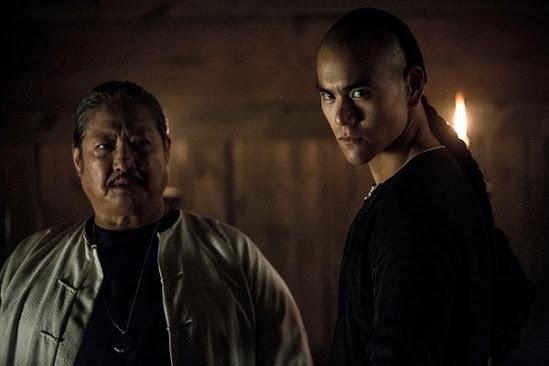 |
| “And after you do that, I want you to walk over a mile of hot coal and bring me a sugar cookie.” |
Man-Ching Ng’s cinematography and Pater Wong’s art direction are a match made in heaven, so to speak, and the cursive tour de force of their collaboration is present as early as the film’s opening sequence, an idyllic and bloody street battle wherein Wong takes out an assault of countless men, most of them armed with swords, the scene slowing down for him to muse to himself during a moment of fatigue, “I cannot die.”
Blood flows, tables crash, a patter of rain floods the concrete dance floor under the many waltzing foot and body falls of musical chaos. Wong thinks of his childhood, of his father’s work as a town physician. Not yet the great warrior or physician himself but charged with the spirit of both, he takes the hands of his father’s ailing patient, his friend, and says, with the unfiltered confidence and logic of youth, “I won’t let you die. You have to get up! You’re not going to die! You can have my peanuts. Get up!… Listen, My name is Wong Fei Hung. People call me Little Fei. I tell myself I’m invincible. Why am I so strong? I will tell you why. I am invincible because-“ and then the narrative cuts him off, introducing the film’s title in a splash of black paint on scroll-like yellow canvas.
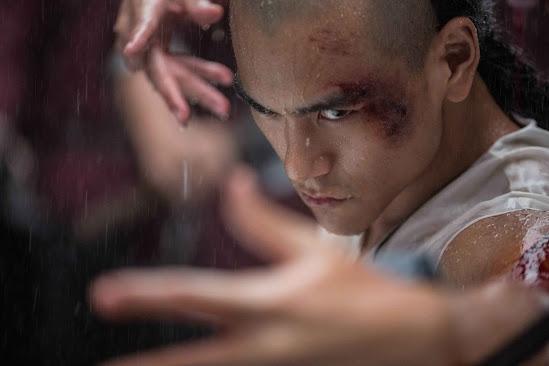 |
| “Be honest! I look cool as shit!” |
It’s an opening that promises an epic story to follow. Not just a film full of bad ass fight scenes and amazing stunts, but an interwoven story full of intrigue, history, subtext, and a handful of interesting characters interacting on a cinematic chessboard. It’s a landscape of violence and ambition, young men seeking to rise and gain prominence in the streets. It’s poverty as catalyst for desperate measures and a hardening of the soul through the toughening of the mettle.
To be sure, they probably didn’t fight like this back then, but the choice to express the fighting through wuxia and fantasy style martial arts is an inspired one. This was done for Yuanjia in Fearless, and Ip Man in Donnie Yen’s incredible (and, apparently, ongoing) series. It is as welcome here.
The fight scenes are so frenetic and explosive that one finds it difficult to not be inspired to pause after each one for an impromptu training session; appropriate for a film about a man whose commitment to martial arts still inspires and challenges devoted practitioners to this day.
A subplot that begins early in the film is a series of flashbacks to Wong’s childhood, during the time he traveled with his father on trips from Foshan into the province capital of Guangdong. His father, Wong Kei-ying, played by Tony Leung Ka-fai, earned a living in his early years performing martial arts and acrobats in the streets, also peddling medicine to the poor. But it was his devoted study of the martial arts that would lead to him becoming named as one of the Ten Tigers of Canton, a revered grouping of Guangzhou’s greatest martial artists of the 19th century. His son would inherit both his martial arts talent as well as a penchant for the medicinal arts, and would go on to improve upon both later in his own life. As a physician, Wong Fei-hung practiced and taught acupuncture as well as other traditional Chinese medicine in Po Chi Lam. Such became his prestige, even arguably more noteworthy than his achievements in fight science, that a medical museum was erected in his honor back at Foshan City, the place of his birth.
Rise Of The Legend is a must see for any martial arts habitué, as well as any cinephile with an appreciation of the genre. But it is misleading to regard Rise as just a tale of fisticuffs. There’s love, there’s tragedy, there’s a color palette that sings, if that makes sense, conveying the story to us on a wave of silk. There are awe-inspiring vistas and carefully structured locations that add their own subtext to the story. And it’s always a joy to see the great Sammo Hung do his thing.
See it for the power of it all. And if this here sentence and closing seems a bit cursory, it’s because, go figure, I am suddenly motivated to train.
Written by Khalil Barnett
Native New Yorker. Been writing for a long time now, and I enjoy what I do. Be nice to me!

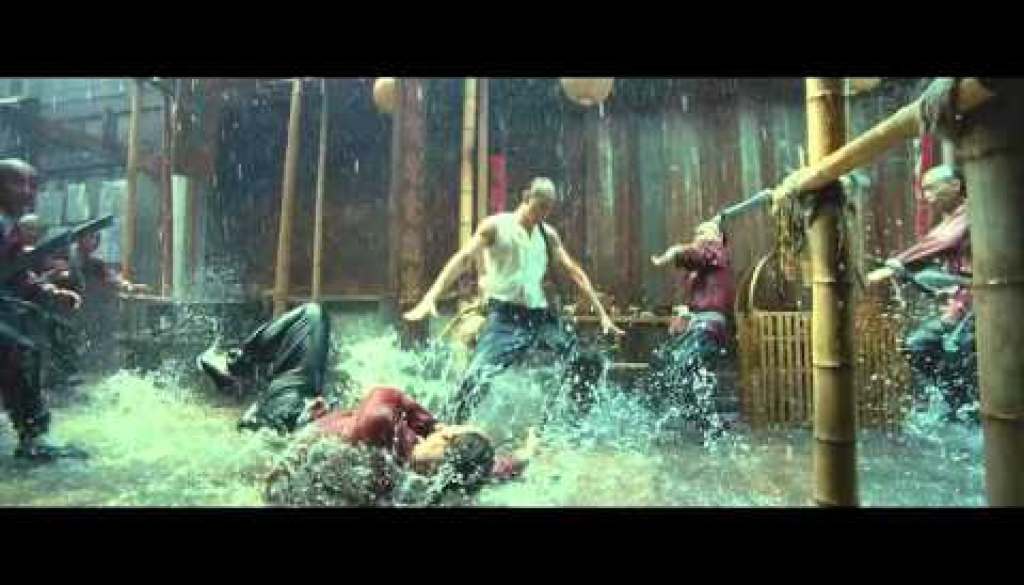
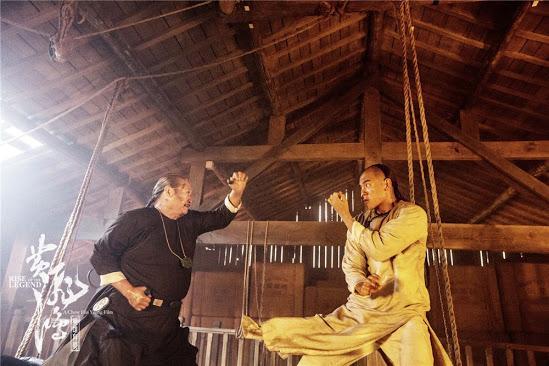
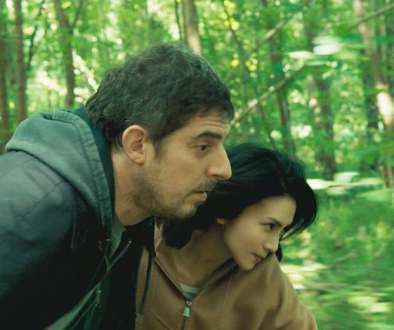
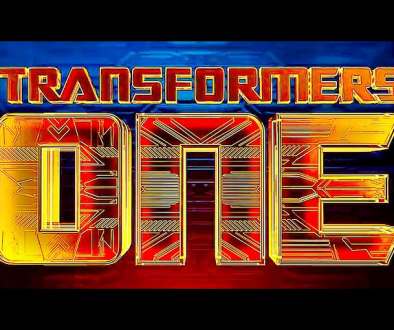
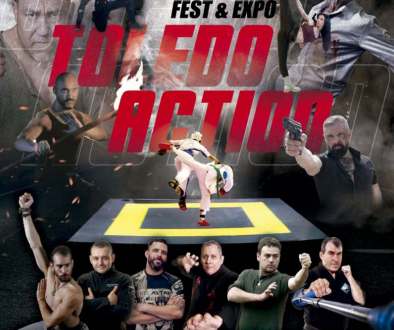
May 24, 2016 @ 8:26 pm
very well written! thank you for this review!
May 26, 2016 @ 2:47 am
And thank you for reading. You should definitely check it out!